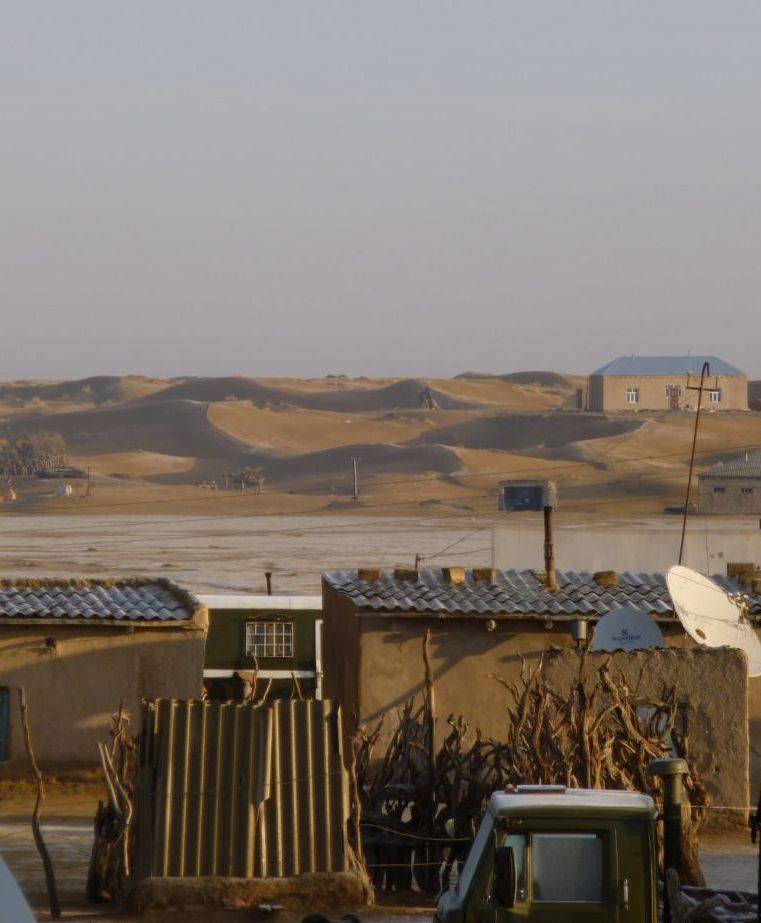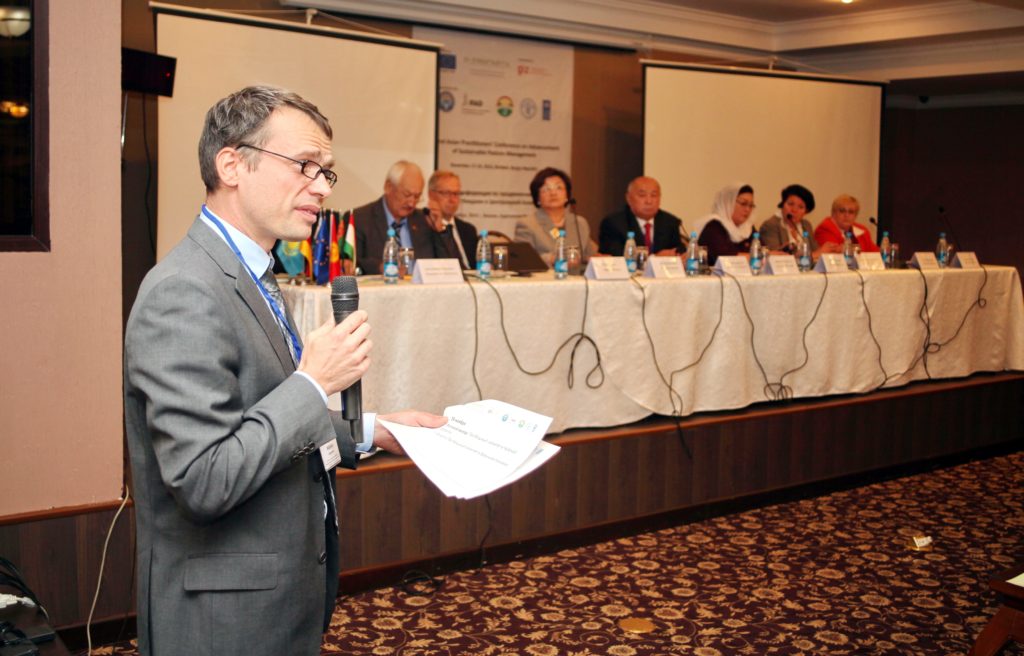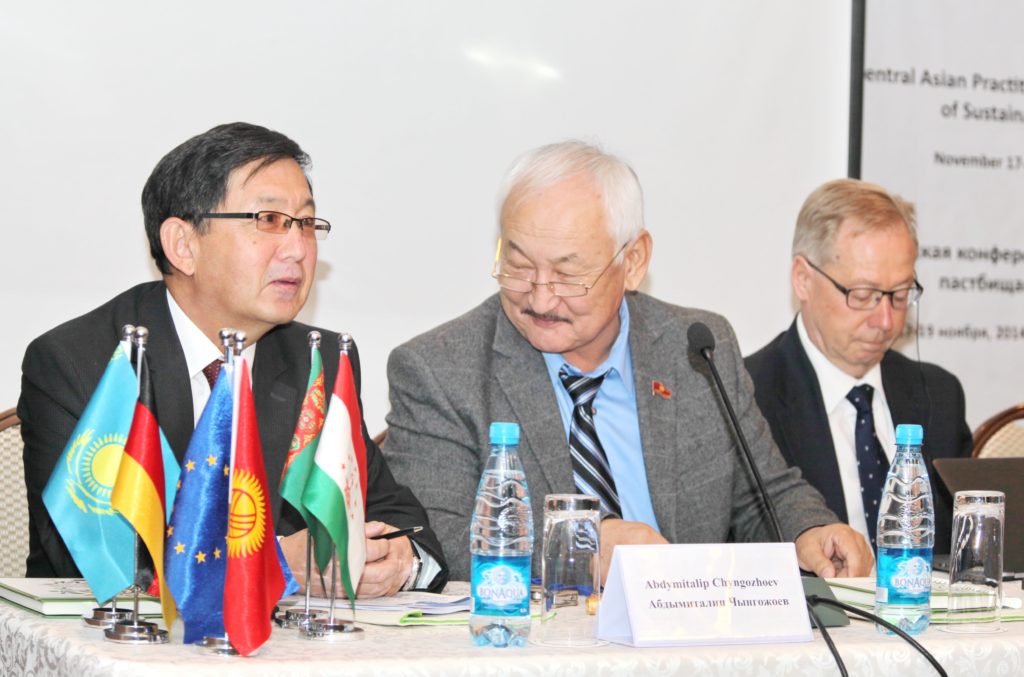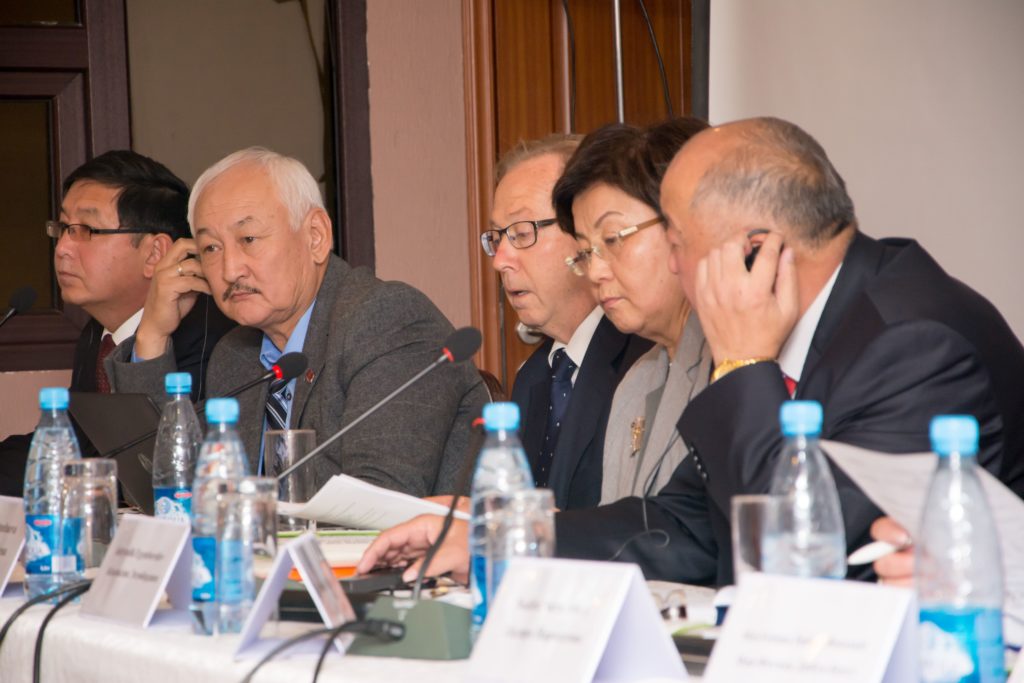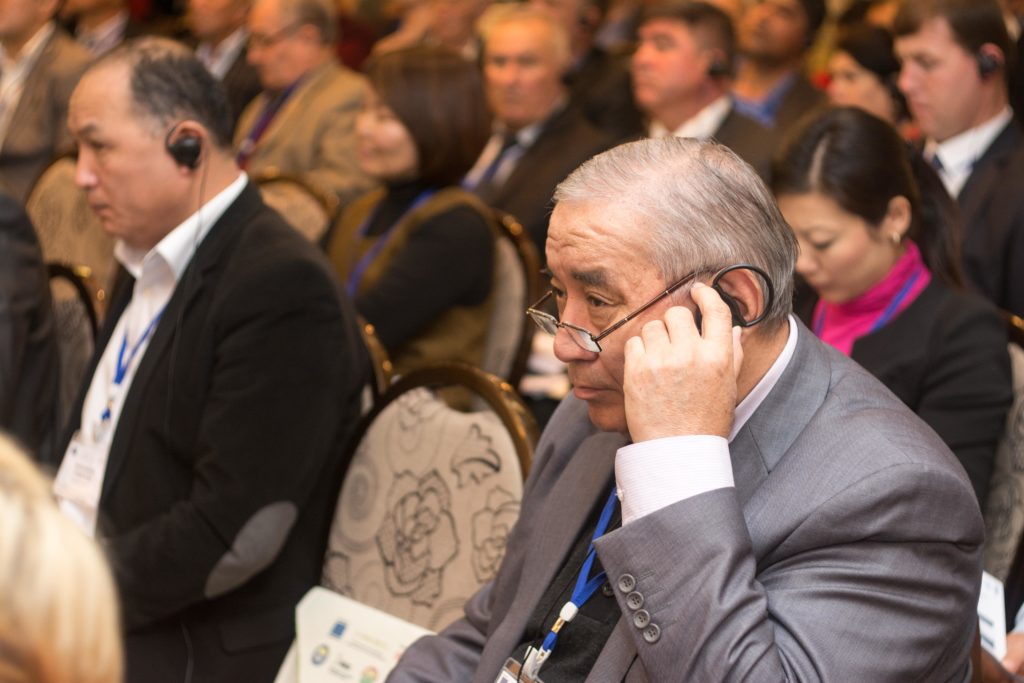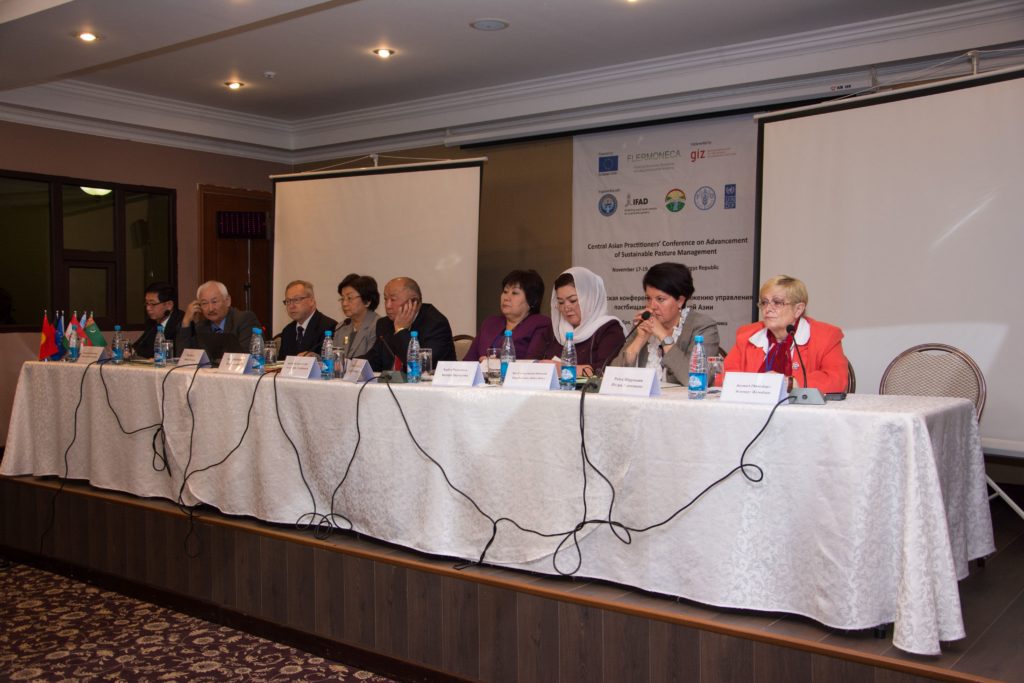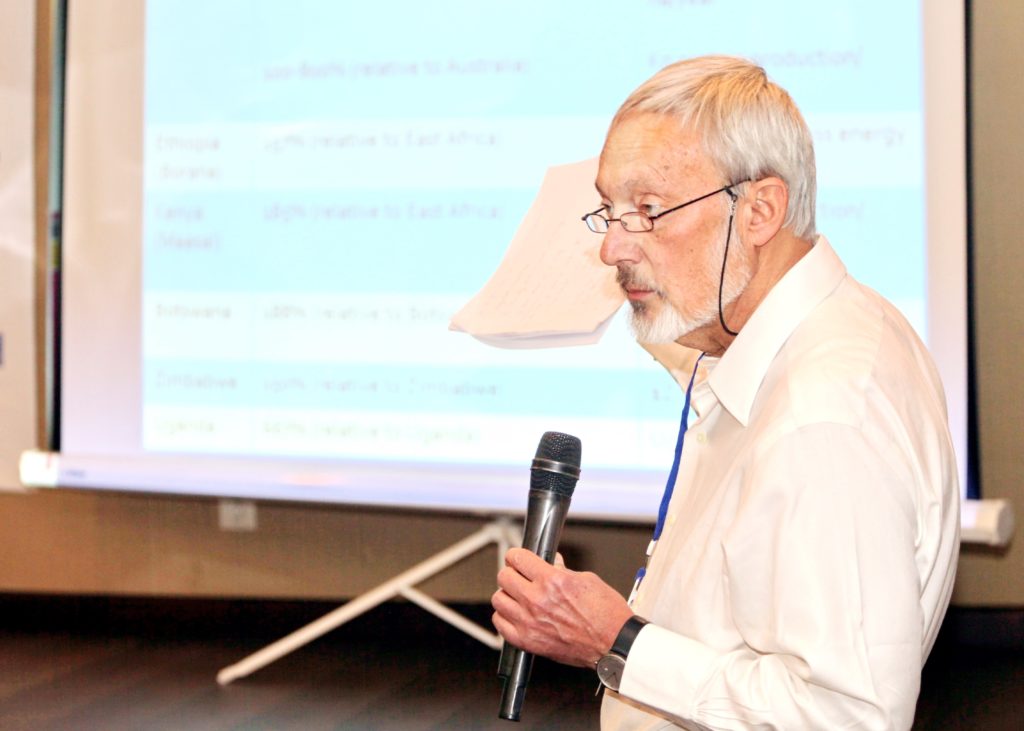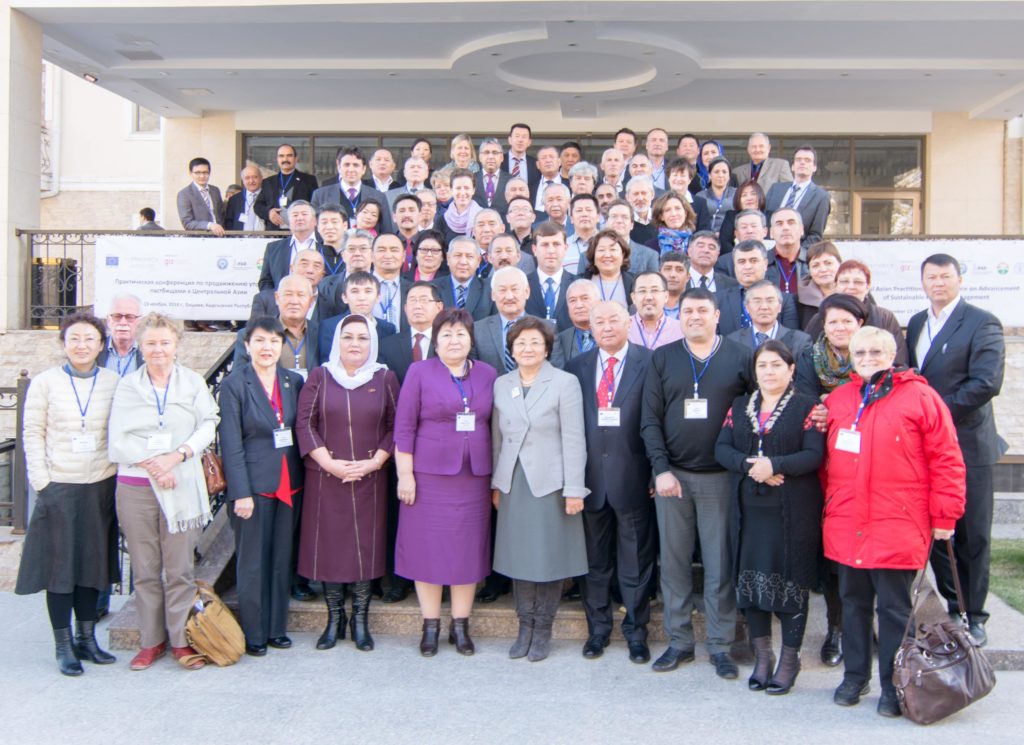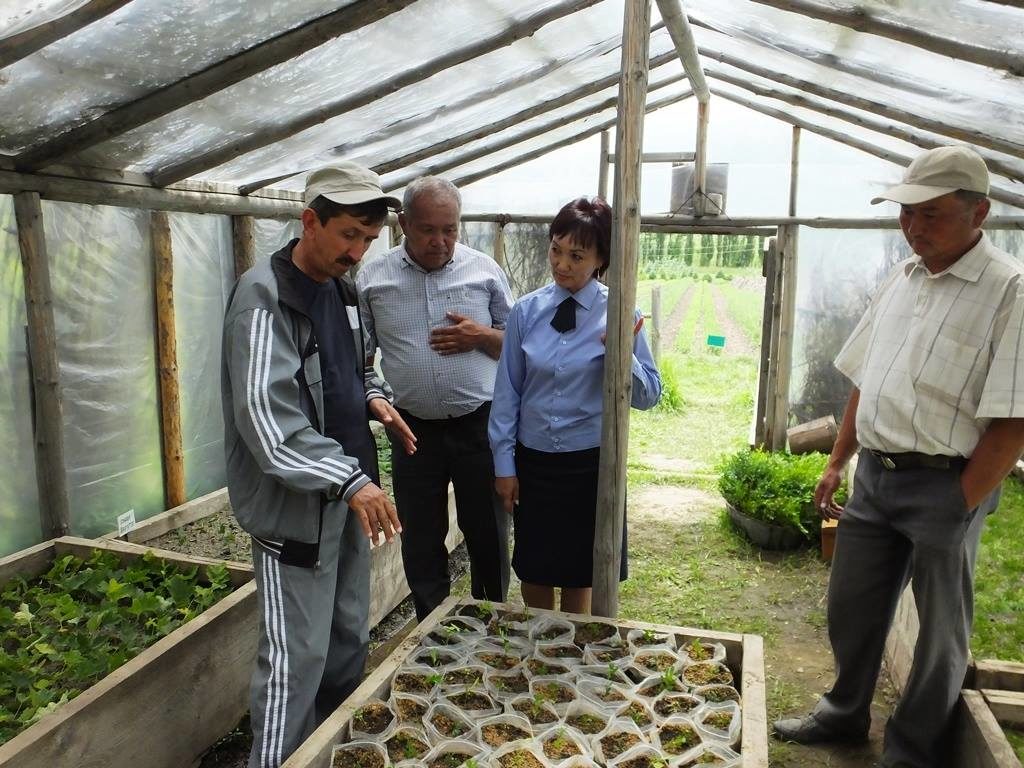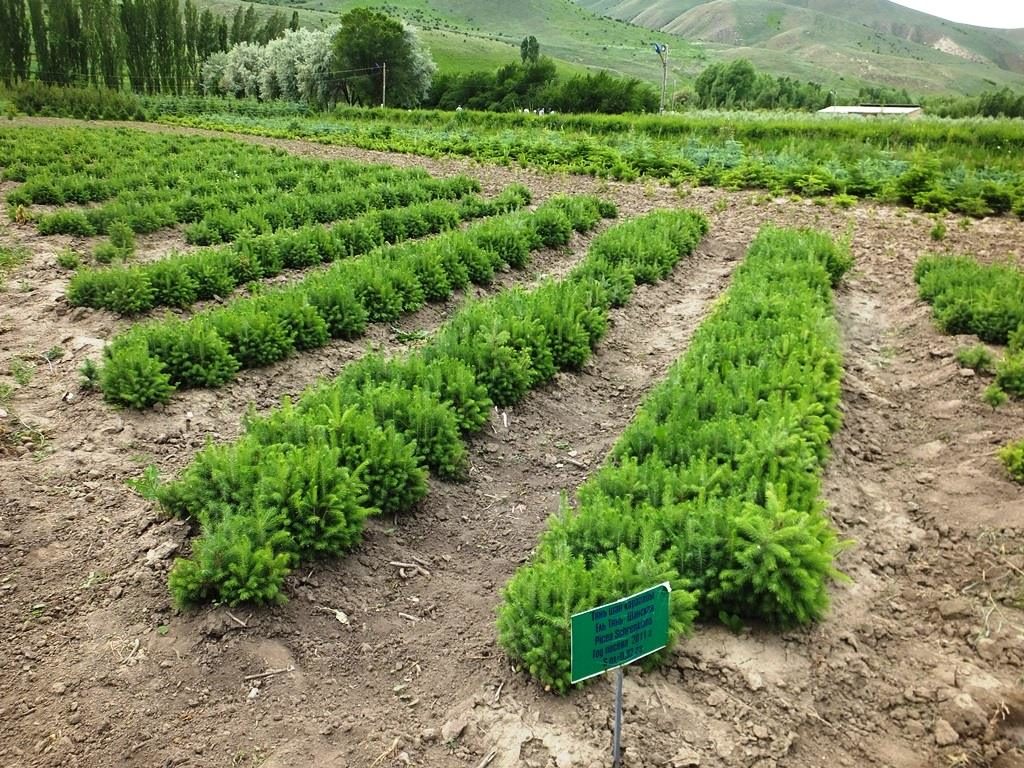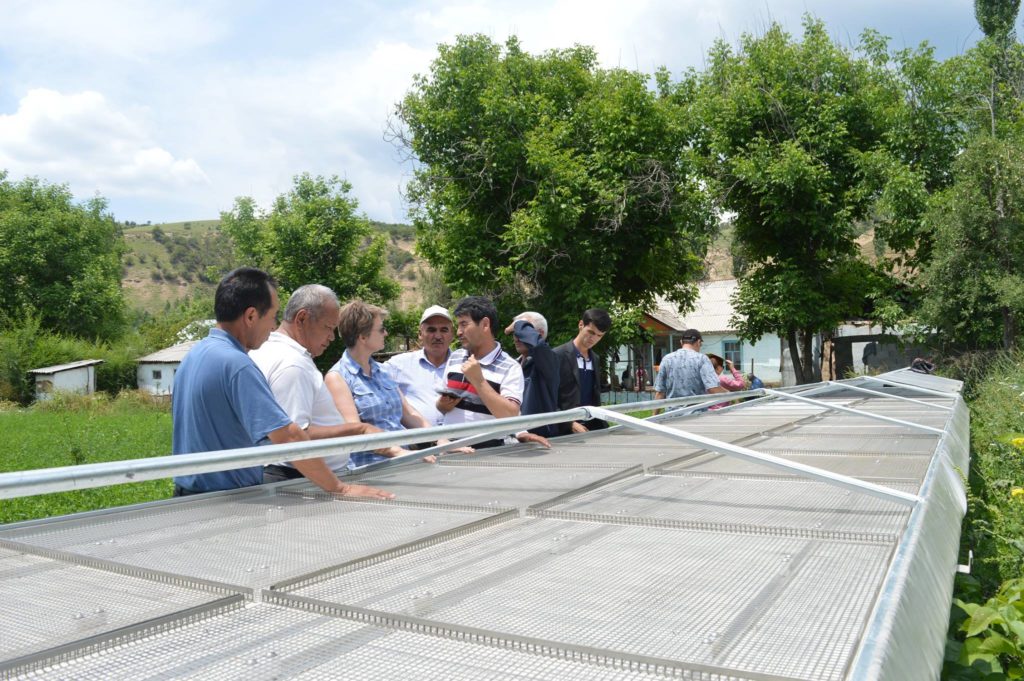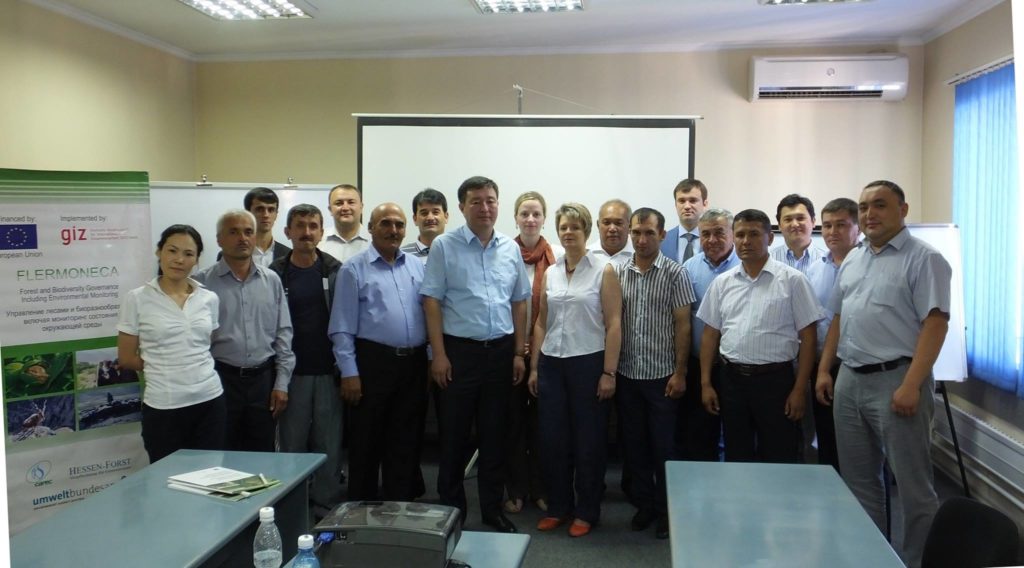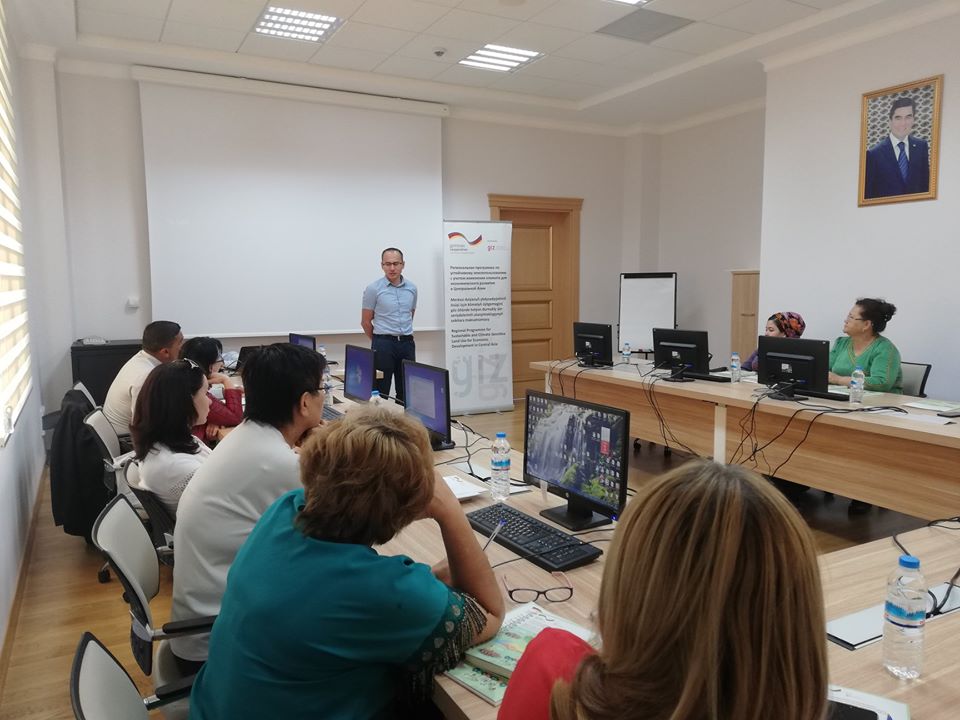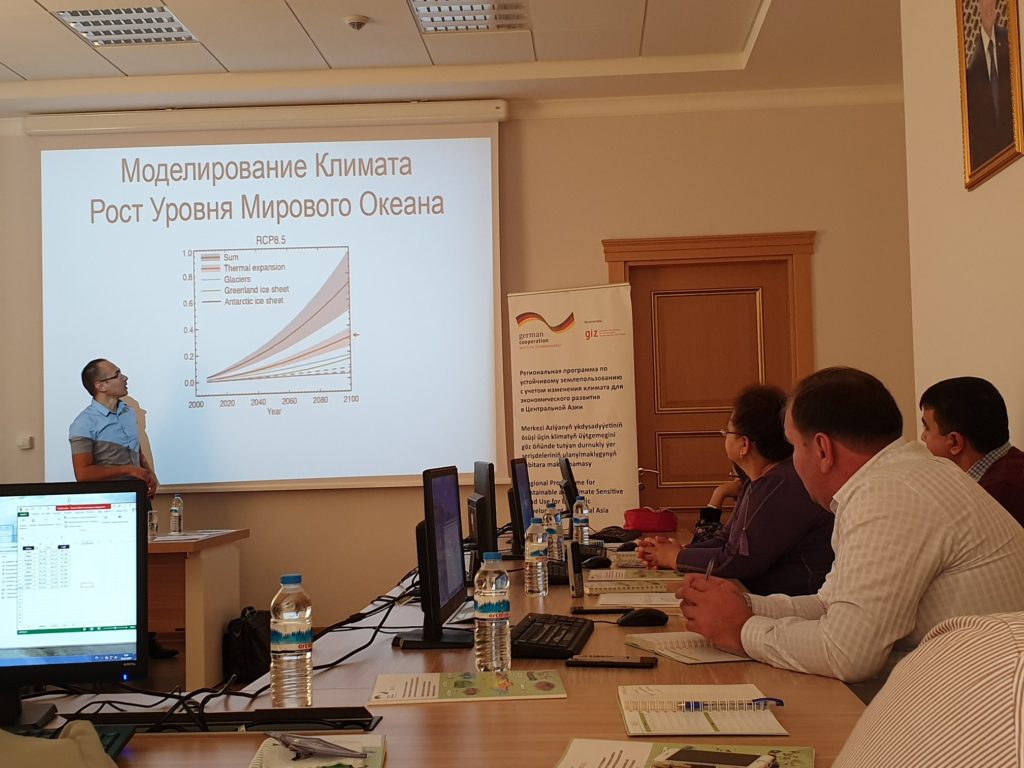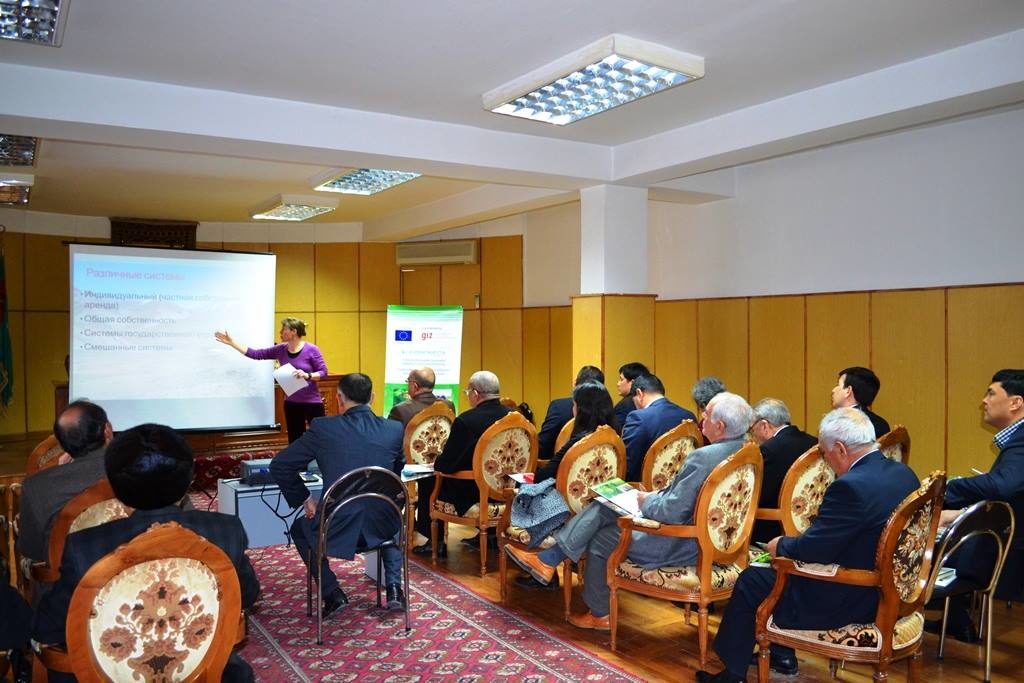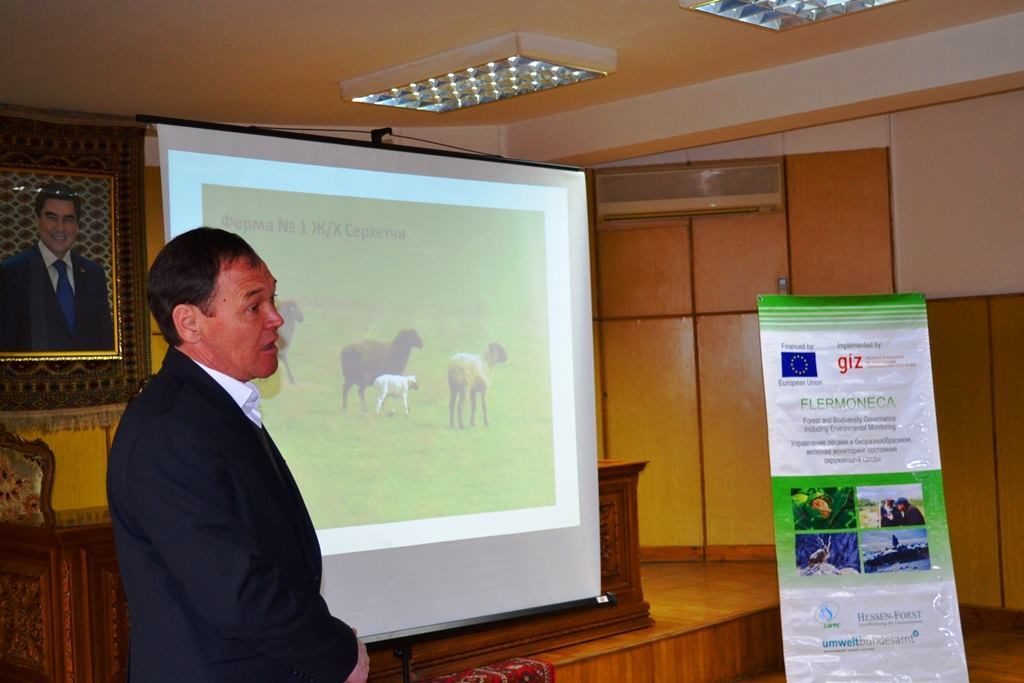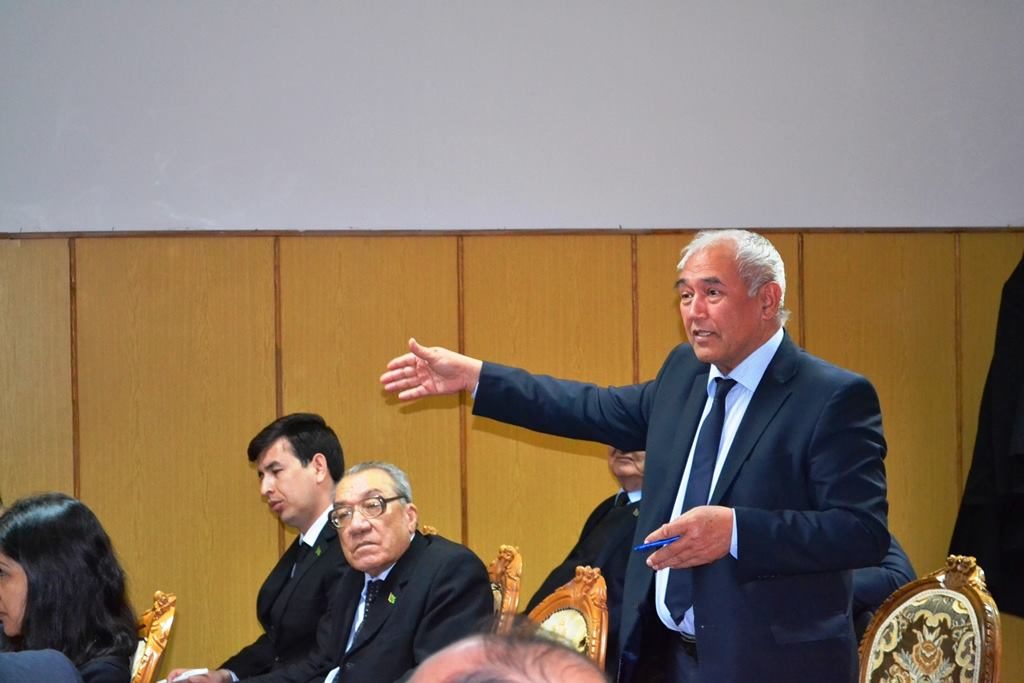Since 2009, the Deutsche Gesellschaft für Internationale Zusammenarbeit (GIZ) GmbH Program has been supporting knowledge exchange on sustainable land management both between different sectors and at different levels, including local, national and regional.
One of the important steps was the creation of the Regional Environmental Expert Network of Central Asia (GREEN Central Asia), which brings together organizations and independent experts from various sectors. GREEN CA aims to strengthen communication between specialists and their involvement in the development of various development projects and strategic planning processes in the Central Asian region. Their expertise helps implementing sustainable use of natural resources and the ideas of a green economy and low carbon development. The main element of the network is a consortium between Karaganda Ecological Museum and the NGO CAMP Alatoo (Kyrgyzstan).
In 2017, the Central Asian Regional Pasture Network became part of GREEN CA, created to facilitate the exchange of experience and knowledge in the field of pasture management in the region, China and Mongolia. The work of the Network contributes to the dissemination of successful models and approaches in all countries, as it includes both individual practitioners and representatives of organizations and projects.
Specifically, in August 2014, the Program supported a study tour to Kyrgyzstan for representatives of government agencies and non-governmental organizations from Tajikistan and Turkmenistan. During the study tour, participants learned about the pasture management experience of Kyrgyzstan and developed joint recommendations for improvement in all three countries.
In 2014, Bishkek hosted the Practitioners’ Conference on Advancement of Sustainable Pasture Management in Central Asia. The purpose of this event for politicians and practitioners from Tajikistan, Kyrgyzstan and international experts was to exchange experience and knowledge and join efforts to promote reforms in the pasture sector. Representatives of Kazakhstan, Turkmenistan and Uzbekistan had the opportunity to learn about international experience and the experience of their Kyrgyz and Tajik colleagues.
Conference participants were provided with innovative tools and approaches to managing grazing lands, as well as proven mechanisms and processes.
The program of the event included a field visit to one of the pasture committees in Chui oblast. Some of the Important outcomes of the conference were the exchange of experience and knowledge, discussion of further actions and documentation of best practices and approaches. In addition to that, the results of the conference, an overview of the situation in the countries of the Central Asian region, analysis, comments and recommendations were included in the brochure “Sustainable Pasture Management in Central Asia”.
SIC ICSD employees actively participate and contribute to the events organized by the Program in Turkmenistan. In particular, the head of the ICSD Secretariat Mr. Batyr Mammadov made a presentation during the seminar for journalists “Climate Change and Pastures in Turkmenistan” (Ashgabat, February 2019) on the impact of climate change on desert pasture productivity, and his colleague Mr. Kurban Allaberdiev shared with journalists the climate policy pursued by the country and told about the progress in revising the National Climate Change Strategy of Turkmenistan.
As a contact person from Turkmenistan for the UNFCCC, Mr. Allaberdiev also participated in seminars on climate change and climate forecasts (September 2018) for the Hydrometeorological Service and experts involved in the preparation of National Communications to the UNFCCC.
Field visits in Central Asia and study tours abroad help the exchange of experience and continuous training of practitioners and decision makers.
Specifically, a training seminar for journalists “Climate Change and Pastures in Turkmenistan” was an excellent opportunity for GIZ colleagues from Kyrgyzstan and partners to more deeply explain the current issues and challenges related to climate change (Ashgabat, 2019). Turkmen experts from SIC ICSD and the UNFCCC Focal Point shared with journalists the climate policy pursued by Turkmenistan and the main points of the National Climate Change Strategy. Also, experts spoke about the impact that climate change on the productivity of pastures, a very important natural resource that Turkmenistan is rich in. An interesting and constructive dialogue between the expert community and journalists of the two countries, as well as the exchange of experience and knowledge between the media workers of the national print media and television channels and their colleagues from all five regions was highly appreciated by the Turkmen side and extensively covered in the mass media.
Another tool to facilitate the exchange of experience is the development of an ICSD information policy and document management system. The ICSD decision approved the introduction of a modern and convenient online tool – K-Link. In order to pilot the tool, the SIC head office in Ashgabat and its branch in Kazakhstan were provided with a k-box that allows storing files in electronic form and regulating access to the organization’s database. The Regional Program held introductory workshops for SIC ICSD employees in Ashgabat (2018) on the tool. Later that year, SIC ICSD in Ashgabat and its branch in Kazakhstan decided to open to each other access to the organization’s internal documents through mutual authorization of access to the k-box of each country.
Another example is a technical seminar on enhancing the forecasting capacity of employees of the Turkmen Hydrometeorological Service (September 2018). The event was held by a
Program expert and employees of the Kyrgyz Hydrometeorological Service. The exchange of experience and knowledge between hydrometeorological services of the two countries lasted for two days.
In May 2018, a government delegation involved in the development of new pasture law visited the French Pyrenees to learn about the current pasture management system.
In 2015, with the support of the program “Sustainable Development of Central Asia”, Turkmenistan developed the Law on Pastures. However, some provisions of the Law were completely new and difficult to implement in Turkmenistan. In this regard, it was necessary to develop detailed regulations. During a trip to France, Turkmen delegates could see how the French experience could be replicated in Turkmenistan. Participants noted that along
with independent pastoral groups, there were groups who worked more closely with the government, which is more applicable in Turkmenistan.
The study tour participants learned that there were several pasture management systems in the French Pyrenees. Pastures are state owned but managed by users as a shared resource. Methods of organizing users, accessing pastures, and relations between users and state bodies responsible for environmental and sanitary regulation are all relevant to Turkmenistan.
For example, management decentralization to the level of users leads to increased efficiency. Most pastures are managed by livestock breeders themselves and are divided into pasture user groups (PUGs). This eliminates the need for government agencies to communicate with hundreds of individual herders. They work locally and thus have the advantage of solving local problems and planning appropriate infrastructure development. Pasture access hierarchies give preference to the needs of residents, while avoiding excessive or incomplete grazing and allowing outside users to graze on pastures based on their carrying capacity.
The delegation consisted of nine representatives of the Parliament, the Ministry of Agriculture and Water Resources, the heads of the Land Resources Service offices of Ahala and Maryi veloyats, GIZ consultants, lawyers and land use experts.
